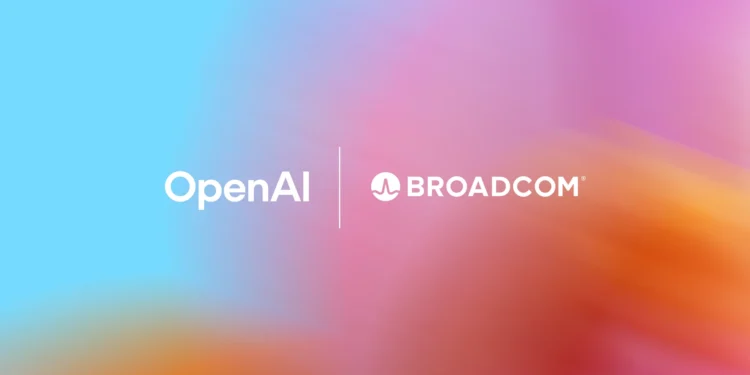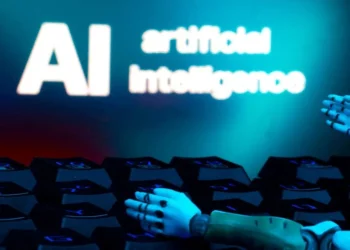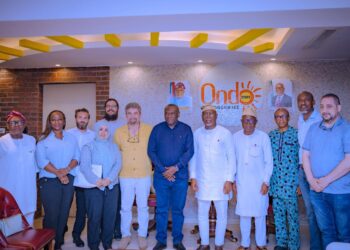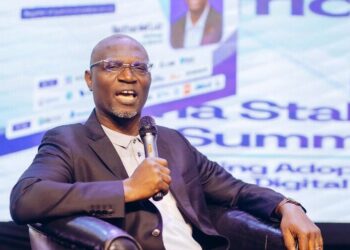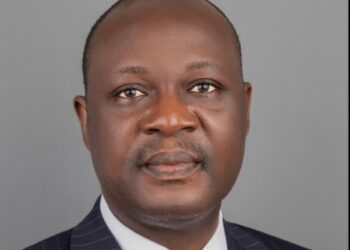OpenAI has announced a new partnership with technology giant Broadcom to build powerful computer chips that will make artificial intelligence (AI) work faster and smarter.
Both companies have signed an agreement to produce racks (large sets of computers) that will use Broadcom’s high-speed networking technology to connect the AI systems.
OpenAI will design the accelerators and systems, which will be developed and deployed in partnership with Broadcom. The goal is to create enough power, 10 gigawatts worth, to support OpenAI’s growing AI tools and products.
The project will begin in 2026 and is expected to be completed by 2029.
What they said
Sam Altman, co-founder and CEO of OpenAI, described the partnership as a major milestone in advancing AI infrastructure.
“Partnering with Broadcom is a critical step in building the infrastructure needed to unlock AI’s potential and deliver real benefits for people and businesses.
“Developing our own accelerators adds to the broader ecosystem of partners all building the capacity required to push the frontier of AI to provide benefits to all humanity,” Altman said.
- By developing its own accelerators, OpenAI aims to embed insights from its work on frontier models like GPT directly into the hardware, improving performance and energy efficiency.
- Broadcom’s President and CEO, Hock Tan, emphasized the significance of the partnership in shaping the next phase of AI evolution.
“Broadcom’s collaboration with OpenAI signifies a pivotal moment in the pursuit of artificial general intelligence. OpenAI has been in the forefront of the AI revolution since the ChatGPT moment, and we are thrilled to co-develop and deploy 10 gigawatts of next generation accelerators and network systems to pave the way for the future of AI,” Tan said.
According to Tan, the collaboration showcases how semiconductor innovation and AI research can converge to push the limits of computing performance.
More details
Greg Brockman, co-founder and President of OpenAI, explained that the collaboration with Broadcom will help achieve major progress in AI performance and accessibility. He noted that building OpenAI’s own chips allows the company to apply lessons learned from developing advanced models directly into hardware, creating faster, smarter, and more capable AI systems.
The move is expected to make OpenAI one of the few companies that design both large-scale AI models and the specialized chips needed to power them efficiently.
Charlie Kawwas, President of Broadcom’s Semiconductor Solutions Group, said the partnership sets new standards for building scalable and energy-efficient AI systems.
He explained that custom accelerators work seamlessly with Broadcom’s Ethernet networking technology to create cost-effective and high-performing AI infrastructure.
The racks will include Broadcom’s full range of Ethernet, PCIe, and optical connectivity tools, reinforcing its leadership in AI infrastructure development. Broadcom’s main focus will be on deploying efficient Ethernet-based networking systems designed to handle massive AI workloads with high performance and reliability.
What you should know
OpenAI has been on an aggressive expansion streak this year, securing major funding and strategic acquisitions to strengthen its position in the AI industry.
- In April, the company raised $40 billion in a record-breaking funding round that valued it at about $300 billion, making it one of the world’s most valuable private tech firms. The round was led by SoftBank, with participation from Microsoft, Coatue, Altimeter, and Thrive. The funds will support AI research and the expansion of its computing infrastructure.
- OpenAI also made a bold move into hardware by agreeing to acquire io Products, a startup co-founded by former Apple design chief Jony Ive, in a $6.5 billion all-stock deal. Ive will serve as Creative Head at OpenAI, leading efforts to design AI-powered devices for the next generation of technology.
- To enhance its developer tools, OpenAI announced plans to acquire Windsurf (formerly Codeium), an AI coding platform that helps developers write and debug code using natural language. The deal is reportedly worth $3 billion and is still being finalized.
- In another major acquisition, OpenAI agreed to purchase Statsig, a product-testing startup, in a $1.1 billion all-stock deal. Its founder, Vijaye Raji, will join OpenAI as Chief Technology Officer of Applications, overseeing product engineering and infrastructure.
The company also signed a $300 billion cloud computing deal with Oracle to secure the power needed to train and run large AI models. The agreement, spanning five years, involves around 4.5 gigawatts of computing capacity.

